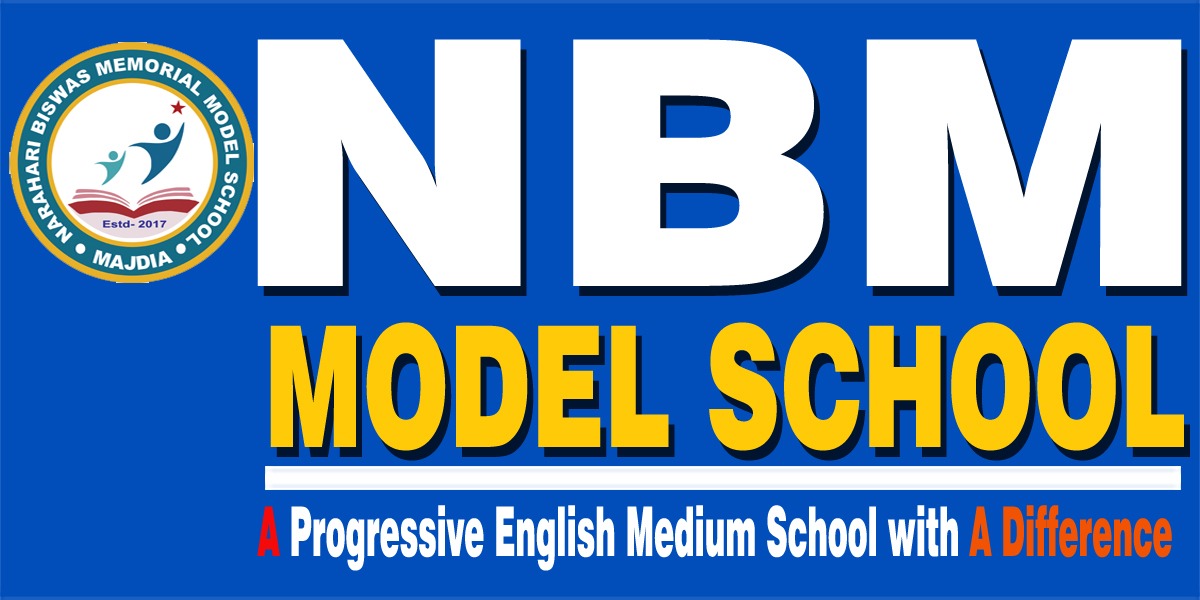FOUNDATIONAL STAGE (NURSERY – GRADE 2)
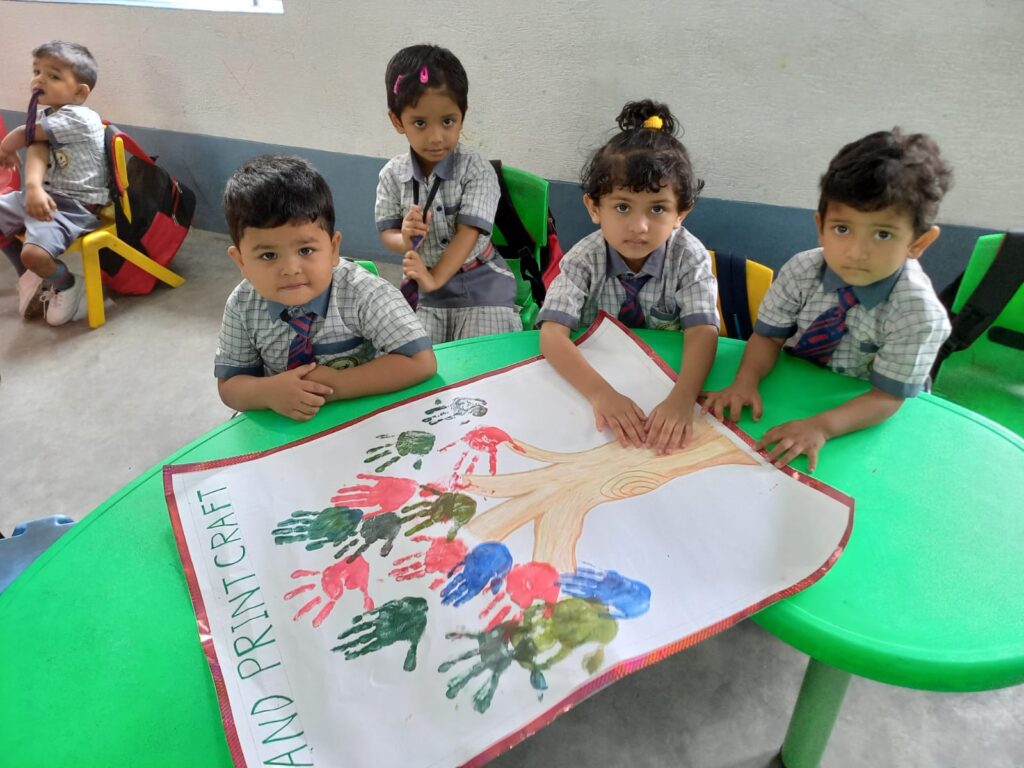
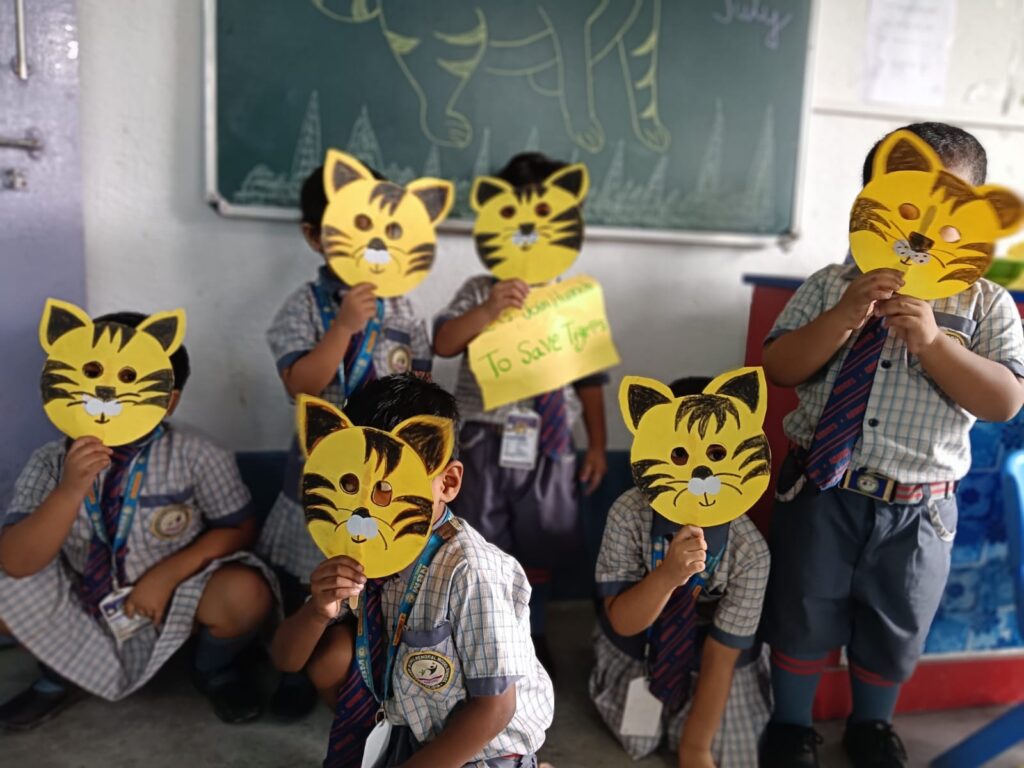
Curriculum Focus:
- Emergent literacy and numeracy
- Oral language development (listening & speaking)
- Environmental awareness, motor skill development, creative play
Pedagogy & Teaching Methods:
- Play-based and experiential learning
- Rhymes, stories, puppet play, art projects
- Use of concrete learning aids (blocks, beads, nature items)
Assessment:
- Continuous, informal observational assessments (checklists, anecdotal records)
- Portfolio of student work (drawings, emergent writing samples)
- Oral & practical tasks (e.g., counting objects, describing a picture)
Co-Curricular Integration:
- Circle time with thematic storytelling
- Art, craft, movement and music sessions integrated with themes (e.g., seasons, festivals)
- Values and social skills embedded through role play and collaborative tasks
Key Outcomes:
- Confidence in speaking and basic understanding of letters/numbers
- Fine motor skills (pre-writing) and gross motor skills (movement games)
- Joy in learning, curiosity and social adaptability
PREPARATORY STAGE (GRADES 3–5)
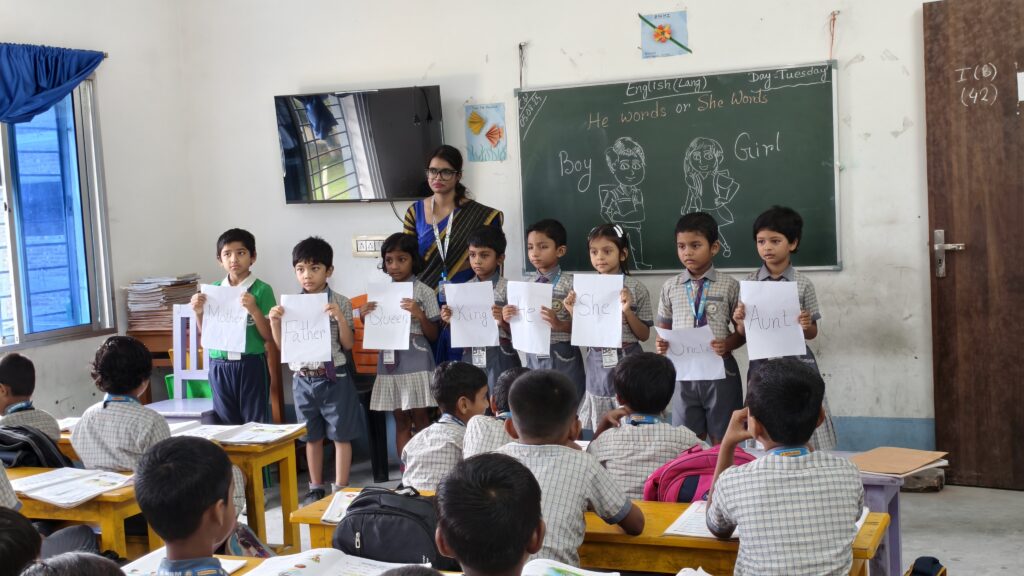
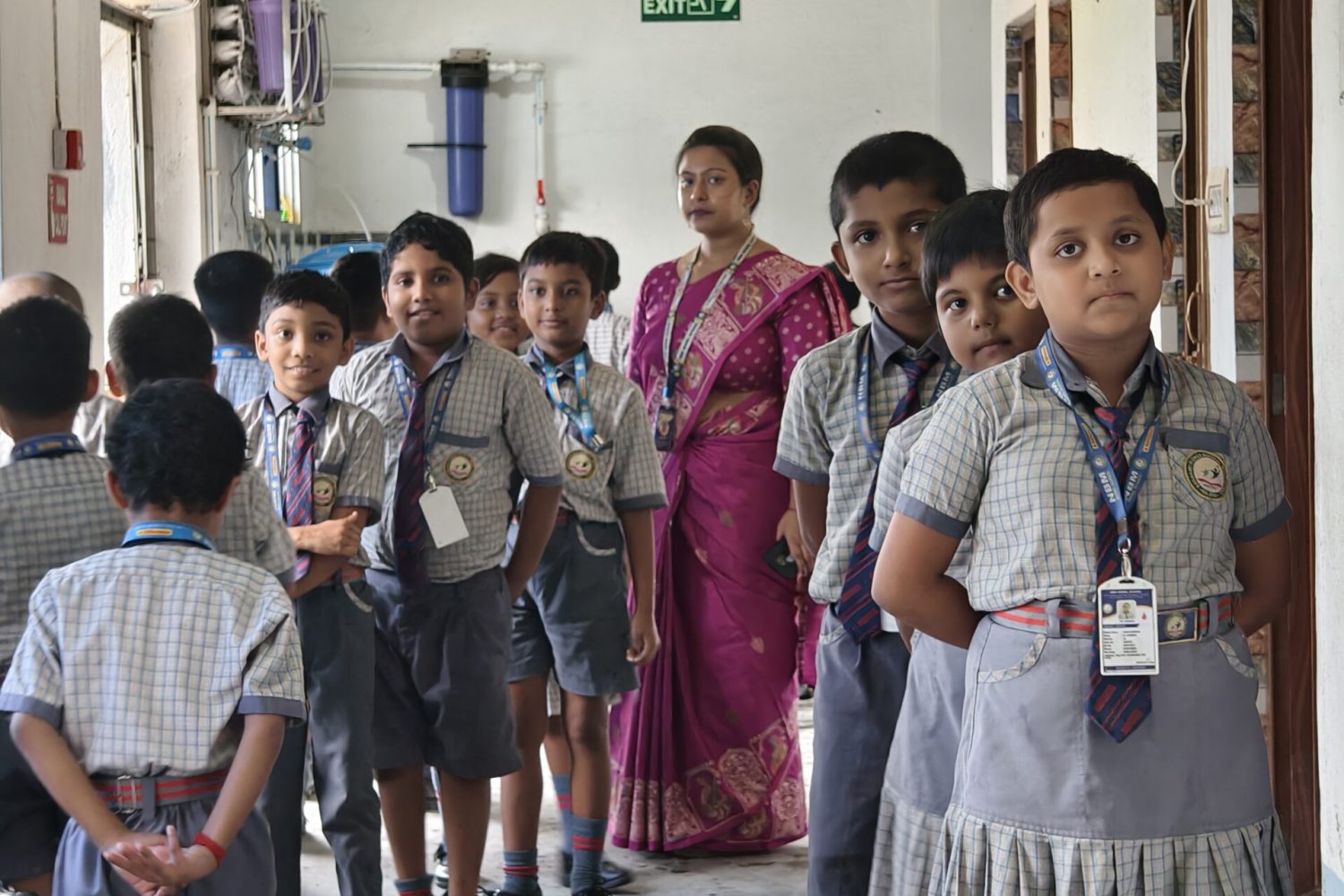
Curriculum Focus:
- Consolidating literacy (reading fluency, compositional writing)
- Developing number sense, basic operations, understanding shapes and measurements
- Environmental science, social studies basics, digital literacy
Pedagogy & Teaching Methods:
- Thematic units linking subjects (e.g., Water – Science, Geography, Art)
- Group projects, creative writing, classroom presentations
- Introduction to digital tools (word processing, presentations, simple coding tools)
Assessment:
- Formative quizzes, worksheets, project-based evaluation
- Rubrics for written work, oral presentation, and creativity
- Periodic comprehensive assessments (end-of-unit tests)
Co-Curricular Integration:
- Inter-house activities (quiz, reading clubs, storytelling)
- Art and craft workshops connected to themes
- Use of library and guided reading sessions to build research habits
Key Outcomes:
- Inter-house activities (quiz, reading clubs, storytelling)
- Art and craft workshops connected to themes
- Use of library and guided reading sessions to build research habits
MIDDLE STAGE (GRADES 6–8)
Curriculum Focus:
- Strengthening conceptual understanding in Mathematics, Science, Social Science, English/Hindi/Bengali
- Introduction to computer science, digital citizenship, and environmental sustainability
Pedagogy & Teaching Methods:
- Strengthening conceptual understanding in Mathematics, Science, Social Science, English/Hindi/Bengali
- Introduction to computer science, digital citizenship, and environmental sustainability
- Interdisciplinary projects (STEAM) integrating arts, science, and social themes
Assessment:
- Formative assessments (lab reports, journals, peer feedback)
- Summative assessments combining written, oral, and project-based components
- Self- and peer-assessment prompts to develop reflective learning
Co-Curricular Integration:
- Clubs (Science Club, Literary Club, Eco Club) running theme-based activities
- School app to showcase student projects; student-led newsletters/blogs
- Olympiad training, inter-house fairs, exhibitions
Key Outcomes:
- Clubs (Science Club, Literary Club, Eco Club) running theme-based activities
- School app to showcase student projects; student-led newsletters/blogs
- Olympiad training, inter-house fairs, exhibitions
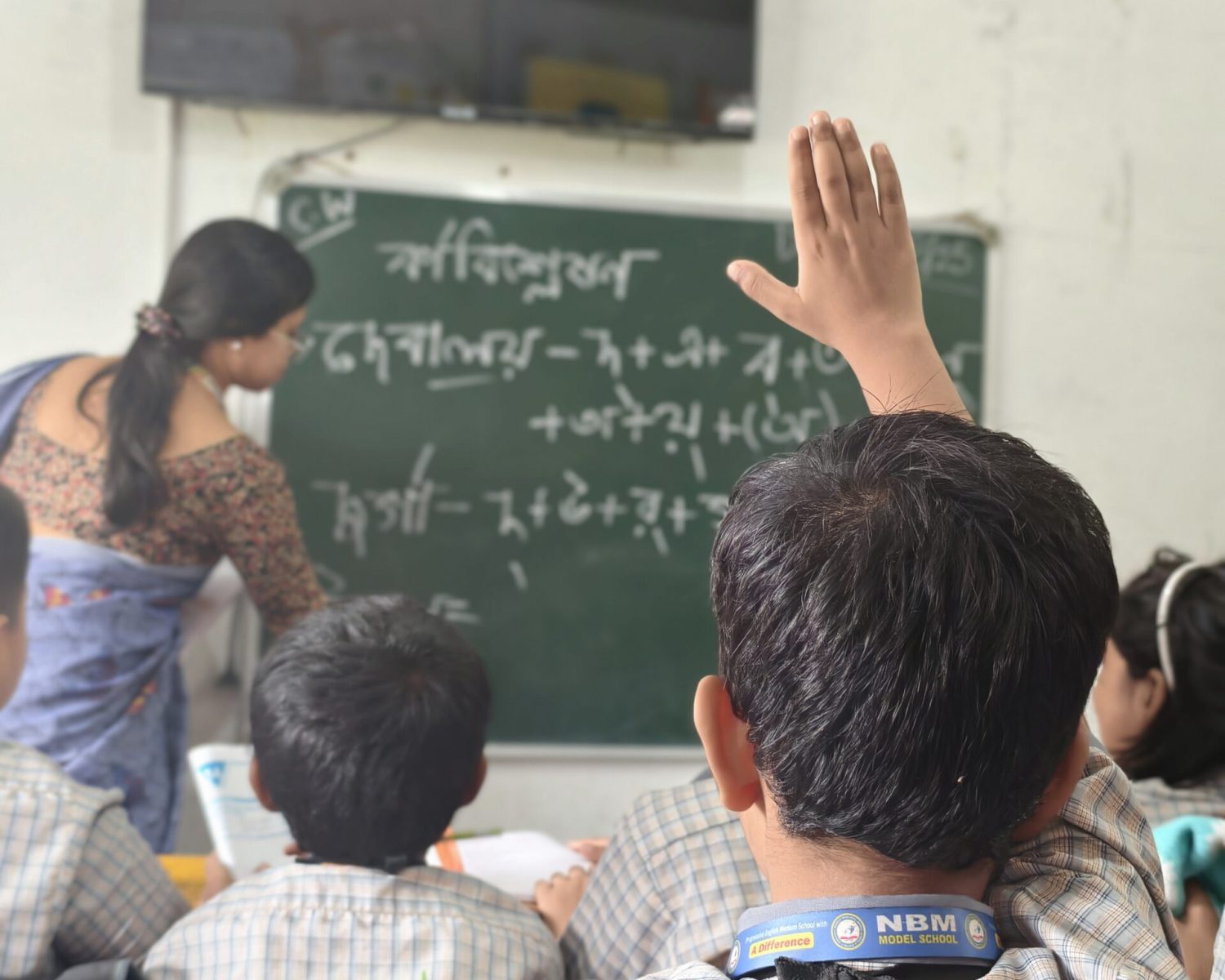
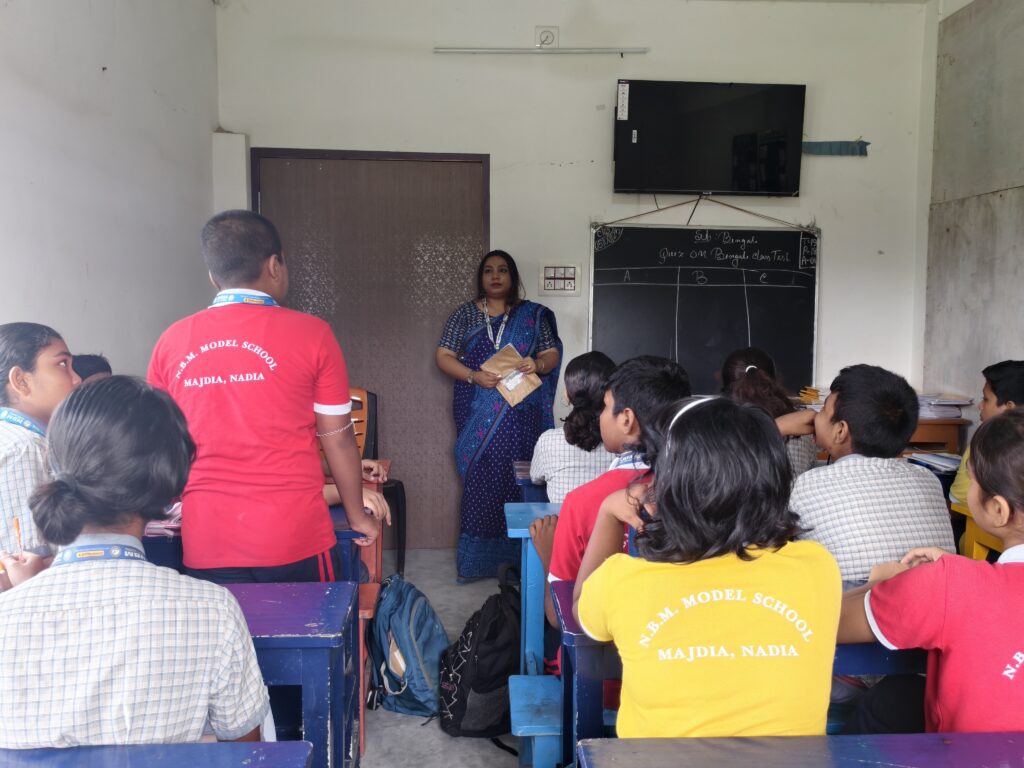
SECONDARY STAGE (GRADES 9–10)
Curriculum Focus:
- Rigorous subject knowledge and conceptual clarity in Sciences, Maths, Languages, Social Science
- Digital proficiency (data handling, advanced presentations, coding principles)
- Life skills: decision-making, career awareness, civic responsibility
Pedagogy & Teaching Methods:
- Rigorous subject knowledge and conceptual clarity in Sciences, Maths, Languages, Social Science
- Digital proficiency (data handling, advanced presentations, coding principles)
- Life skills: decision-making, career awareness, civic responsibility
Assessment:
- Summative exams aligned with CBSE format (objective + descriptive question papers)
- Internal assessments: periodic tests, practicals, project submissions
- Emphasis on analytical writing, research-based assignments, peer feedback
Co-Curricular Integration:
- Olympiad and competitive exam training
- Career guidance sessions, expert talks, webinars
- Student leadership (student council, school publications, community outreach)
Key Outcomes:
- Strong academic readiness for higher secondary and competitive exams
- Independent learning, reasoning, and disciplined study habits
- Civic awareness, digital responsibility, leadership, and ethical living
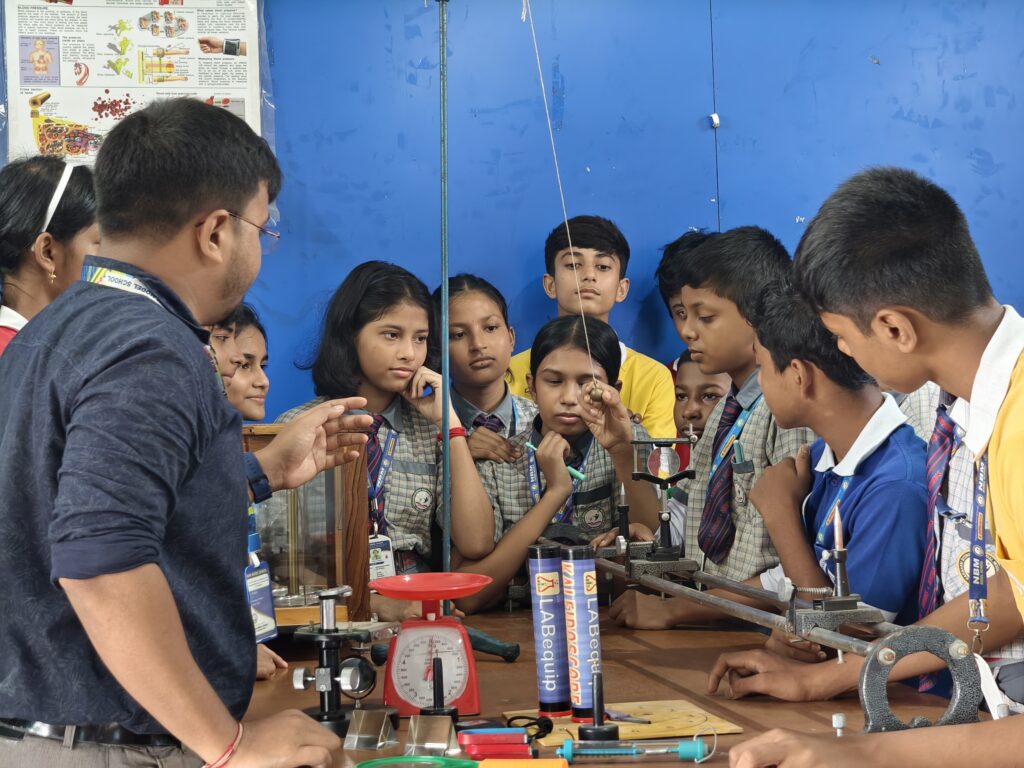
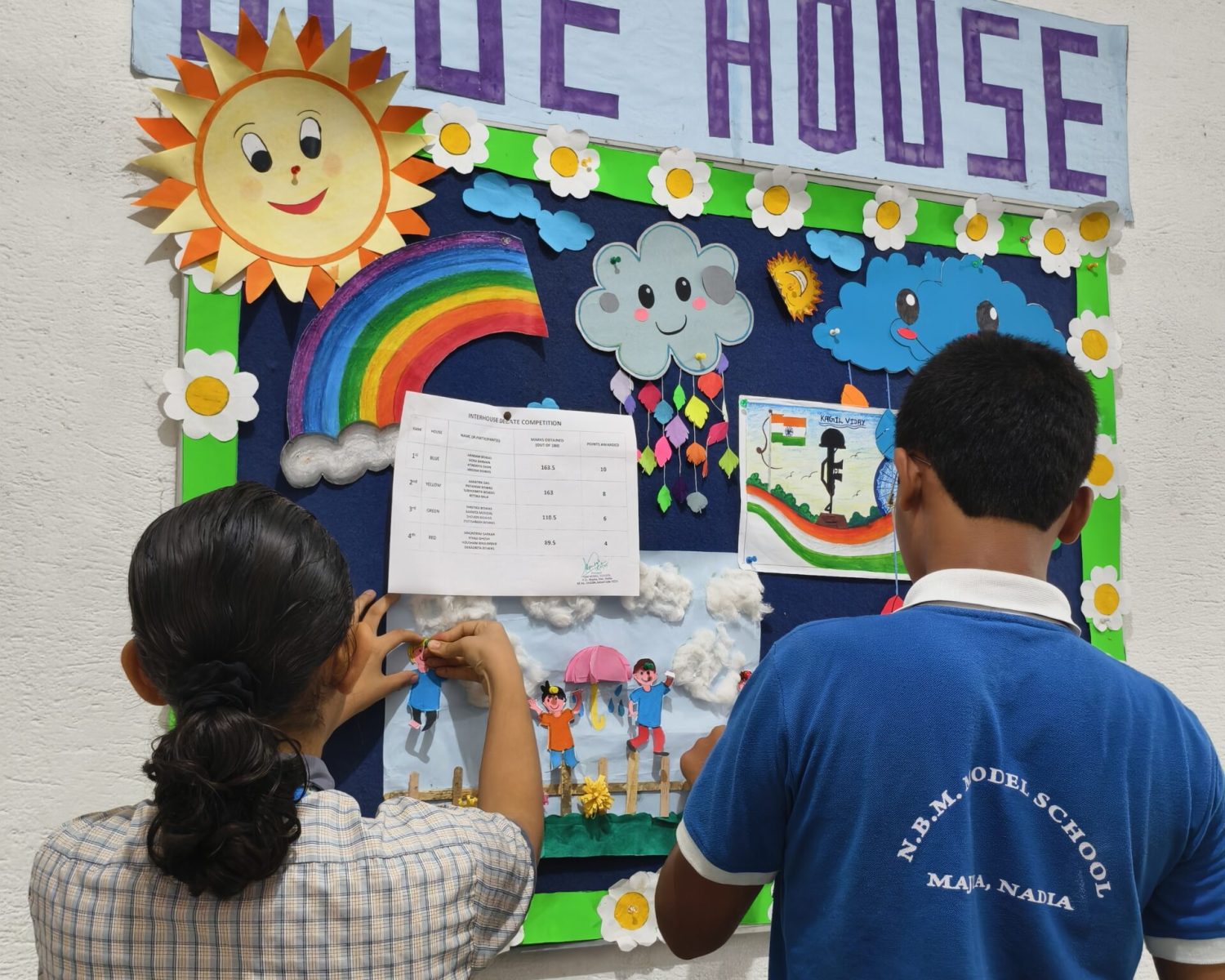
Stage wise Overview Table:

